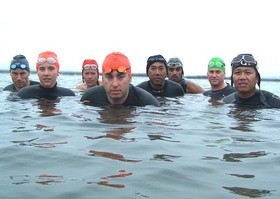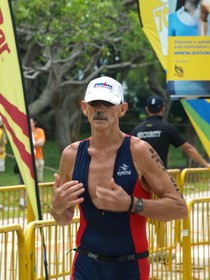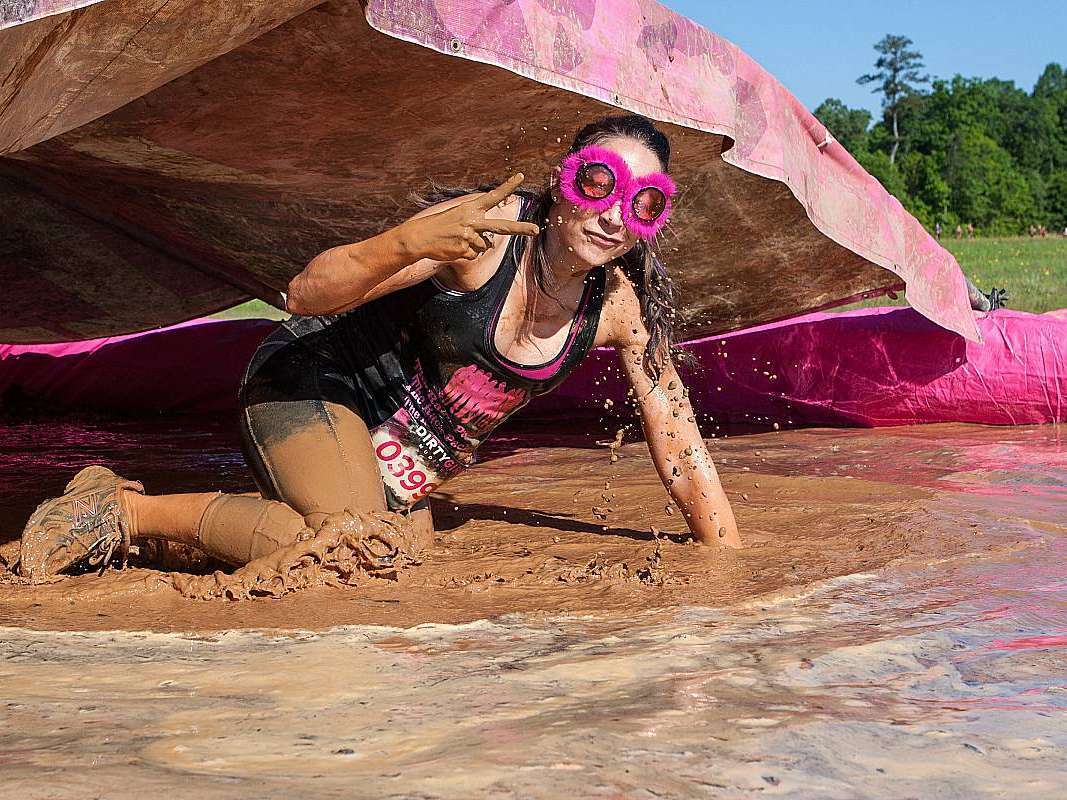 People in their 40s represent the fastest-growing segment in the sport of triathlon.
People in their 40s represent the fastest-growing segment in the sport of triathlon.
This is but one expression of the “fit after 40” time we live in. An increasing number of people are becoming involved in endurance sports in the second half of their life journey; maybe you are one of them.
Coach Don Nava, in his book Fit After 40: 3 Keys To Looking Good And Feeling Great, says there are 5 major questions people ask as they cross the line into the second half of their lives:
-
Will I ever feel young again?
-
Is my life going to make a difference?
-
Have I reached the pinnacle of my ability?
-
Is this all the happiness I can ever hope to have?
-
What will happen after I die?
Nava also defines true “fitness” to include 6 areas:
-
physical
-
directional
-
nutritional
-
emotional
-
mental
-
spiritual
It’s no secret then why the sport of triathlon has become increasingly popular among the over-40 crowd. Training and competing in triathlons can help shape an answer to some of the above questions, and provides plenty of opportunity to grow in each of those 6 areas.
For example, take the 1st question: Will I ever feel young again?
Typically, the older we become the more aches, pains, and stiffness we experience in our joints and muscles — which makes us “feel old.” Yet this is largely a matter of flexibility, and flexibility is related to the degree a person stays in motion. So when it comes to triathlon, the flexibility training aspect and the movement of swimming, biking, and running can significantly help reduce some of those aches and pains. So yes, you can feel young again.
Now take the 3rd question: Have I reached the pinnacle of my ability?
Dara Torres, at age 41, won 3 silver medals at the Beijing Olympics.
Eamonn Coghlan, also at age 41, became the first person over 40 to run a mile in less than 4 minutes.
Then there’s 76-year-old Sister Madonna Buder who has competed in the Hawaii Ironman… like 20 times and broken 4 age group records!
So, it’s very likely you have not, in fact, reached the pinnacle of what you are capable of.
Nor is it too difficult to see how the sport of triathlon could stimulate growth in each of Nava’s 6 key areas:
Physical – the cross-training and entire body conditioning, flexibility, and strength aspects of triathlon leads to total body health and fitness.
Directional – the sport of triathlon can help a person live a focused and self-motivating life in the pursuit of personal goals and fulfillment.
Nutritional – every serious triathlete pays close attention to everything they put in their body.
Emotional – the communal or relational aspect of being a part of the triathlon community, as well as training and competing alongside others can become an emotionally meaningful part of one’s daily life. The triathlon social network of mutual encouragement and support makes a difference!
Mental – all endurance sports, especially the multiple challenges of triathlon, helps build a mental toughness and positive outlook that can be applied to all of life.
Spiritual – for many people, the sport of triathlon is an expression of their spiritual beliefs and practices, and the desire to train and compete with a larger purpose in mind. In many cases, this involves racing to raise awareness and involvement in worthwhile causes and charities.
The Effect Of Aging On A Triathlete
Though people sometimes buy into the aging myth of all the things they can’t do, this doesn’t mean you turn a blind eye to the fact that aging has its impact.
There is research that shows a link between aging and physiological function. The conclusion is: getting older means reduced function.
For example, research shows that aerobic capacity (VO2 max) declines with age. This is because one’s aerobic capacity begins dropping as one’s maximum heart rate decreases — which, after the age of 20, is typically a decline of 6 to 10 beats per decade.
Similar studies on the pulmonary, nervous, muscular, immune, and anaerobic systems show that in the 3rd and 4th decades of life, functional decrease begins — with average losses of 6% to 10% per decade.
However, aging research should be taken with some degree of skepticism. This is because it’s difficult to determine how much of this decrease in function is purely physiological and how much of it is attributed to lifestyle habits.
For example, a sedentary lifestyle would obviously contribute to a decrease in physiological function. There is evidence that long-term endurance training slows the process of aging.
Endurance Sports For The Over-40 Athlete
There are both advantages and disadvantages to endurance sports for people over the age of 40.
Here is what a few over-40 triathletes have shared about how their training has changed over the years:
-
 I have found that recovery from a hard training session doesn’t come as quickly as before.
I have found that recovery from a hard training session doesn’t come as quickly as before. -
As an over-40 athlete, my level of concentration and mental toughness is much stronger than when I was competing in my 20s. I am more able now to push my body through distractions and fatigue.
-
The secret to my success as an over-40 triathlete has been following hard training days with easier days, and not letting myself put on weight in the off-seas
on. -
In my 20s, I took no rest and recovery days. In my 30s I normally had one rest and recovery day every week or 10 days. Now in my 40s, I take an entire rest and recovery week after 3 or 4 weeks of hard training.
-
I used to do strength training sparingly, now I do it year round.
-
It’s no longer my age I refer to as “over the hill” but it’s how I describe a training session.
As an over-40 triathlete, I want to encourage you to extend your longevity and enjoyment in the sport of triathlon by viewing your age as an advantage.
Become a student of your body and the aging process, and adapt your triathlon training plan accordingly. The book Lifelong Success by Ash and Warren is one good way to explore the topic in more detail.
If you are an over-40 triathlete, feel free to leave a comment and share any helpful information or experience that might be of help to others.
I’m over 40 years old, but I don’t give up easily. It wasn’t too long ago that I was exploring the idea of doing my first triathlon. If I can do it, you can too! I'm proof that with a little determination and training, you can get a great deal of fulfillment participating in marathons, triathlons… even ultramarathons.




